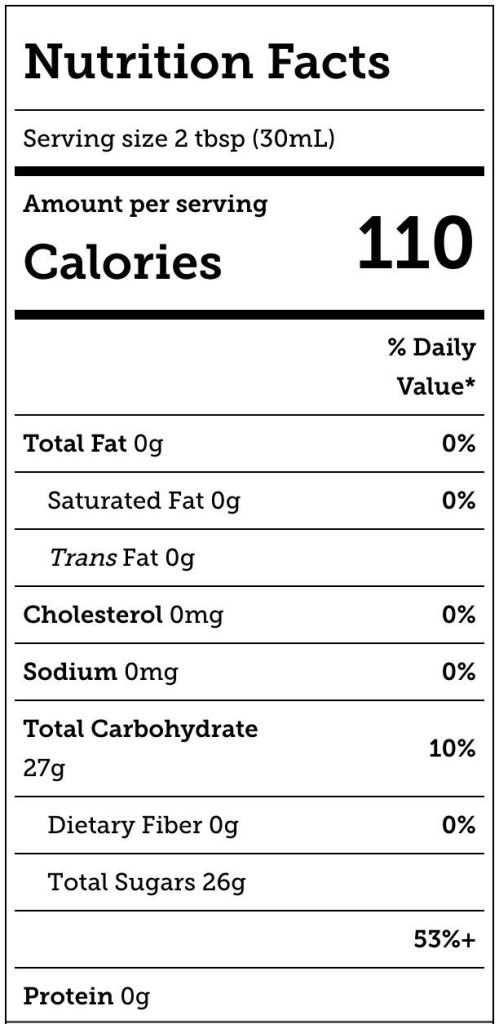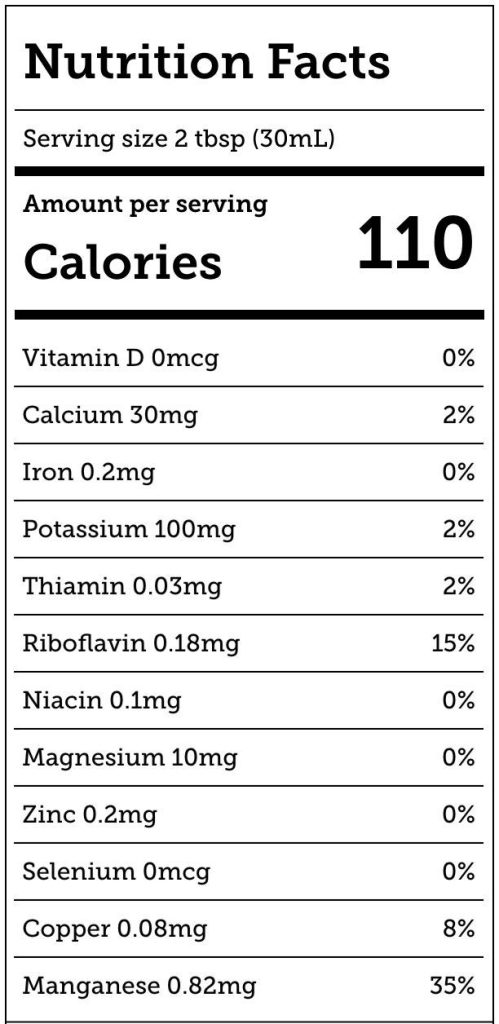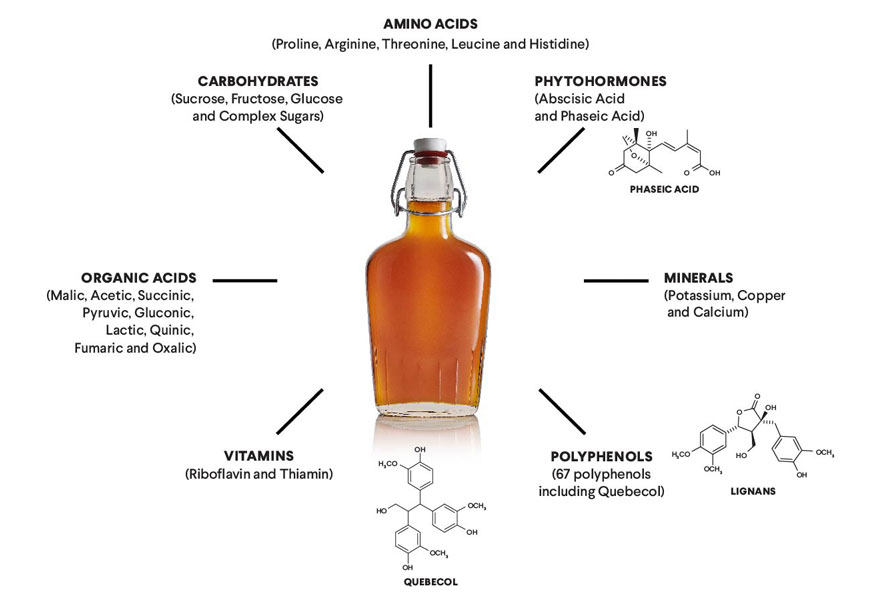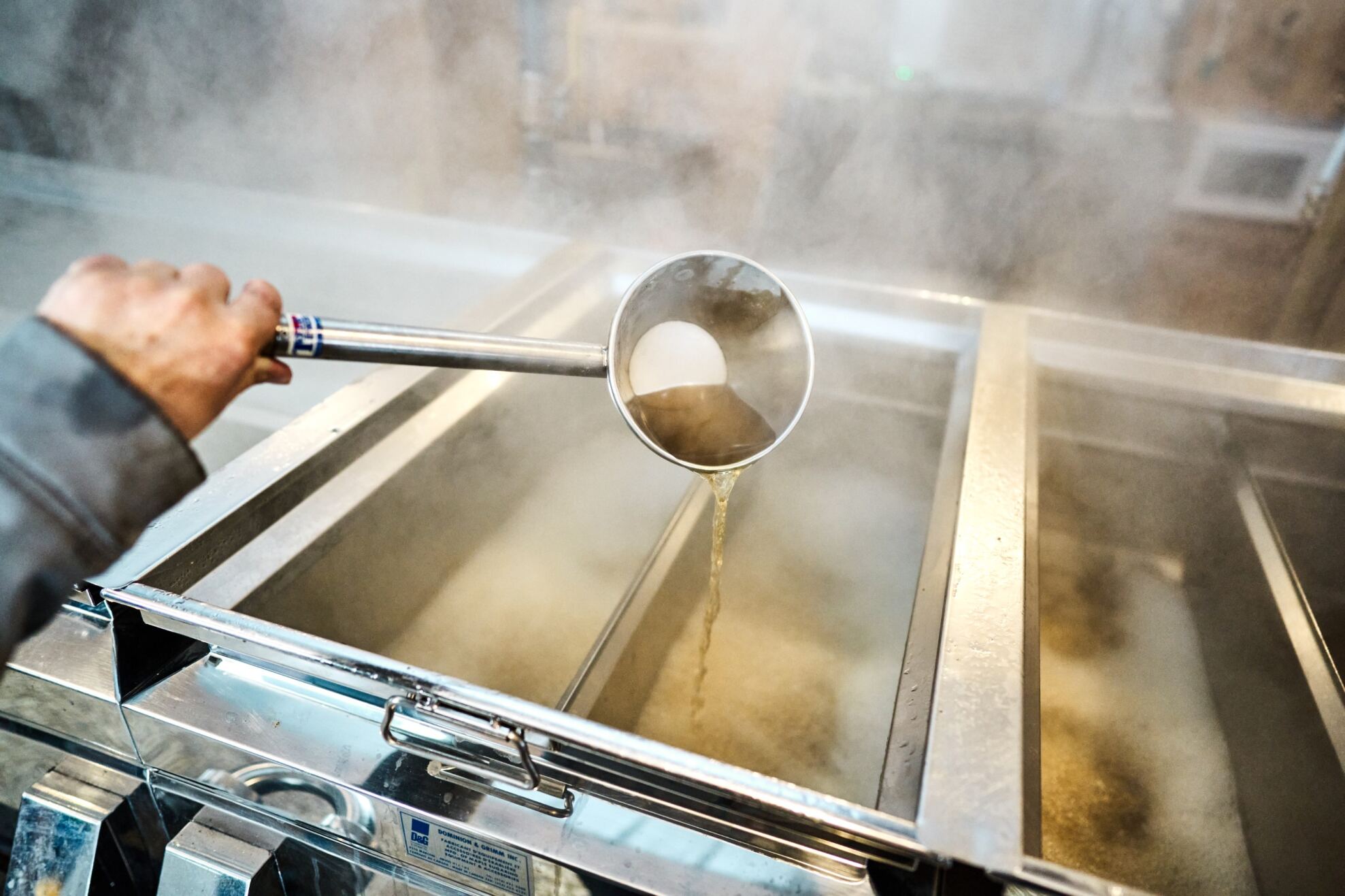Maple syrup nutrition
Learn about the nutritional value of maple syrup, one of the world’s most popular natural sweeteners.
Maple syrup nutrition facts
Delicious, versatile and entirely natural, maple syrup is a popular sweetener with a unique nutritional profile, offering greater health benefits than many of its alternatives.
But what does the nutritional profile of maple syrup look like? How many calories does it have? And what vitamins and minerals does it contain? If you want to find out, keep reading!
Maple syrup nutrition: macronutrients
Maple syrup is a natural product that serves as a source of several essential nutrients. As a sweetener, it is naturally high in sugars, however it is generally considered to offer greater nutritional value than more heavily processed sugars like caster sugar and golden syrup.
Below, you can find the nutritional data within a single tablespoon serving of pure maple syrup – including calories, carbohydrates, vitamins and minerals – and compare this to an adult’s recommended daily intake.

The % Daily Value (DV) tells you how much a nutrient in a serving of food contributes to a daily diet. 2,000 calories a day is used for general nutrition advice.
Calories
A single tablespoon serving (15ml) of pure maple syrup has around 52 calories, representing about 2.5% of an adult’s recommended daily intake. Compared to other sweeteners, maple syrup has fewer calories than honey, golden syrup and caster sugar.
Carbohydrates
Pure maple syrup consists mostly of carbohydrates, with there being around 13.5g carbohydrates per tablespoon. The main carbohydrate in maple syrup is sucrose, and there are also small amounts of glucose, fructose and complex carbohydrates.
Fat
As with most sweeteners, there is almost no fat to be found in maple syrup, with virtually none in a single tablespoon serving and only tiny trace amounts of 0.1g fat per 100ml portion.
Protein
Similar to fat, there are only trace amounts of protein in pure maple syrup – certainly not enough to derive any associated health benefits from the macronutrient.
Maple syrup nutrition: micronutrients
Along with being relatively low in calories and having only a modest amount of carbohydrates compared to other sweeteners, pure maple syrup also serves as a source of several essential vitamins and minerals, including riboflavin and manganese.
Below, you can find the micronutrient content within a single tablespoon serving of pure maple syrup – including riboflavin, manganese and copper – and compare this to an adult’s recommended daily intake.

The % Daily Value (DV) tells you how much a nutrient in a serving of food contributes to a daily diet. 2,000 calories a day is used for general nutrition advice.
Vitamins
Pure maple syrup is a natural source of riboflavin (vitamin B), a key component for breaking down carbohydrates and supporting cell growth. A two-tablespoon serving of maple syrup contains around 15% of an adult’s daily recommended intake of the vitamin.
Minerals
Maple syrup is rich in manganese, with the sweetener containing around 35% of the adult’s daily recommended intake of the mineral per two-tablespoon serving, supporting a healthy metabolism and bone maintenance. In addition, maple syrup serves as a source of copper and potassium.
Polyphenols
Along with its vitamins and minerals, pure maple syrup has also been found to contain 67 different polyphenols, a family of compounds found in plant foods that may have antioxidant properties. Nine of these polyphenols are unique to maple syrup.
Maple syrup nutrition: glycaemic index
The glycaemic index of pure maple syrup is around 54. In comparison, honey, golden syrup and caster sugar all have a higher glycaemic index than maple syrup, meaning they raise blood sugar levels at a faster rate.

How does maple syrup compare nutritionally to other sweeteners?
While it’s best to limit your intake of high-sugar foods, it’s also true that some sweeteners are healthier than others. The relatively low number of calories in maple syrup, combined with its vitamins and mineral content, generally make it a better option than other sweeteners, especially refined sugars like golden syrup and caster sugar.
Maple syrup vs sugar
As a completely natural sweetener, maple syrup serves as healthier alternative to caster sugar, having fewer calories and a higher concentration of nutrients. One study found that replacing refined sugars with maple syrup can lead to improved cardiometabolic health.
Maple syrup vs golden syrup
Maple syrup is generally considered to have greater nutritional value than golden syrup, owing to the fact that it has less sugar and also contains several vitamins and minerals, while golden syrup is made up entirely of refined sugars.
Maple syrup vs honey
Honey and maple syrup are two natural sweeteners that generally offer greater nutritional value than refined sugars. While they both contain various vitamins and minerals, maple syrup has fewer calories and carbohydrates.
Why it’s important to choose pure maple syrup
One of the main reasons why pure maple syrup is healthier than processed sweeteners like golden syrup and caster sugar is because it is a natural product containing several key nutrients.
With bottles that are clearly marked as ‘pure maple syrup’, you can rest assured that the product is completely natural and free from artificial additives.
However, many supermarkets also stock maple-flavoured blends that are heavily processed and mixed with other ingredients, reducing the nutritional value of the product.
For this reason, it’s always best to check the label of the bottle before buying to ensure you are getting the best quality product.

Find out how pure maple syrup is made below.
Piqued your appetite?
Ultimately, as a result of its high sugar content, it’s best to limit your intake of maple syrup. However, when comparing maple syrup’s nutritional profile to that of other sweeteners, it’s clear that it offers greater value than the vast majority of its alternatives.
If you’re hungry for recipe inspiration, make sure to check out huge range of maple syrup recipes, covering everything from sides, starters and mains to hot drinks, cocktails and desserts!
In line with recommendations from the World Health Organization (WHO), Quebec Maple Syrup Producers (QMSP) support the moderate consumption of sugar. WHO recommends a daily intake of added sugar not exceeding 10% of daily energy intake – an average of about 2,000 kcal. This represents 50g of added sugar or 37.5ml of maple syrup, equivalent to 2 ½ tbsp.
A natural source of energy
Maple syrup is a natural source of energy. Check out our recipes for food and drinks before, during, and after exercise.
)